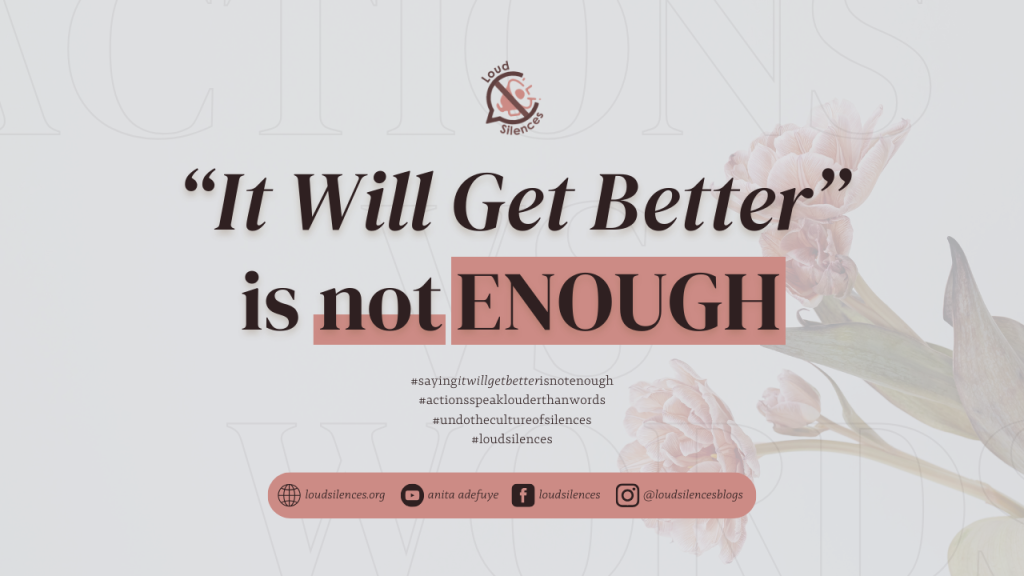Is the boy child at risk? Have you ever wondered (like me), what nurturing the 21st century boy child means for the boy child and the kind of parenting style to support that?
Yesterday was international day of the boy child and while we really should have these conversations everyday, let us hone in a little today shall we?
I have a son (he is 6 years old). But I also have a daughter (she is 9). The woman in me who had suffered many gender-based abuse and discrimination felt well positioned to raise a STRONG, SELF-CONFIDENT daughter. But at some point, I realized I had not fully reflected on what kind of son I wanted to raise.

One day, I had a run-in with my child minder who had a random person present to take care of the kids (without prior knowledge). This random person then had her boyfriend in the house. I was so upset – I imagined the worst. What did I do? I carried my daughter and tried to find alternative care for her – but I left my son!
My aunty I took my daughter to asked me, “Where is Timi?” And I said he was still there. To which she yelled, “So boys can’t be raped?” Suffice to say that opened my eyes to the carelessness to which I was raising my son. He was less than a year old at the time. Now by God’s grace, I know better!
Which brings me to the core of the issue with how we are raising the 21st century boy child. This is a key concept that needs to be addressed. What is that? – TOXIC MASCULINITY!
To be fair, we have made a lot of progress when it comes to masculinity, but there is still a long way to go.
If we are going to balance the scales in favour of girls/women in a way that does not tip the scale to the other end, then we need to consider the following strategies as we raise the 21st century boy child.
7 STRATEGIES FOR NURTURING THE 21ST CENTURY BOY CHILD
1. Redefining Masculinity
Breaking free from stereotypes is the first step in nurturing the 21st century boy by challenging traditional gender norms and stereotypes.
By encouraging boys to express their emotions, engage in activities outside gender norms, and embrace their authentic selves, we can promote self-acceptance, emotional intelligence, and a healthy sense of identity.
Masculinity is not bad – that is why there is toxic masculinity; that is the problem. It is toxic because of the way we expect masculinity to be/look.
2. Emotional Intelligence & Building Healthy Relationships
Emotional intelligence is a vital skill for boys to develop as it helps them navigate their emotions, understand others, and build healthy relationships.
By fostering emotional intelligence through open communication, active listening, and empathy, we can equip boys with the tools necessary for meaningful connections and effective conflict resolution.
3. Teaching Consent and Respect & Nurturing Ethical Behaviour
In the 21st century, it is crucial to instill values of consent, respect, and equality in boys from an early age.
By teaching boys about consent, bodily autonomy, and the importance of treating others with respect, we empower them to be allies and champions of gender equity.
“You don’t raise heroes, you raise sons. And if you treat them like sons, they’ll turn out to be heroes, even if it’s just in your own eyes.”
— Wally Schirra
4. Encouraging Well-roundedness & Balancing Academics, Hobbies, and Relationships
While academic success is important, it is equally essential to foster a well-rounded development in boys.
Encouraging participation in extracurricular activities, promoting hobbies and interests beyond academics, and nurturing healthy relationships with family and friends can help boys develop a sense of purpose, balance, and fulfilment.
5. Positive Role Models & The Influence of Men in Boys’ Lives
Having positive male role models is crucial for the development of boys. Whether it is a father, an older sibling, a mentor, or a teacher, these role models can provide guidance, support, and encouragement.
By showcasing diverse examples of masculinity, we highlight positive male role models. This can inspire boys to emulate admirable qualities and navigate their own paths.
6. Media Literacy & Navigating the Influence of Media
In the digital age, boys are exposed to a vast array of media messages that shape their perceptions of masculinity.
Promoting media literacy skills and critical thinking can help boys analyse and challenge harmful stereotypes perpetuated by the media, allowing them to form their own authentic identities.
7. Building Resilience & Preparing Boys for Challenges
Life presents challenges and setbacks to everyone. Teaching boys resilience, perseverance, and coping mechanisms equips them with the tools to navigate adversity and bounce back from setbacks.
Encouraging growth mindset and providing supportive environment where mistakes are seen as opportunities for growth can foster resilience in boys.
Conclusion
Nurturing the 21st century boy child requires an intentional shift in mindset, embracing progressive values, and actively promoting inclusive approaches.
By implementing these strategies, we can empower boys to thrive in the complexities of the modern world.
By nurturing the boy child today, we are shaping the men of tomorrow who will contribute positively to society, challenge stereotypes, and champion equality.
Let us work together to create a future where all boys can reach their full potential.
Happy international boys day to all our boy children! Wishing you nothing but fun-memory filled years of growing. Hug a boy child and celebrate them!

Join us on Saturday May 20th 2 pm Saskatchewan time as we continue the conversation on the #boychild. We will be having an engaging conversation with 3 amazing Fathers of Boys to hear their perspective and experience when they were boys and how they are raising their boys today!
Mark your calendars and click here to join when its time – YOUTUBE – BOY CHILD

Her book, Reve-Healed – A true story of pain, healing, and hope, is available for purchase. Get yourself a copy today!







Leave a Reply